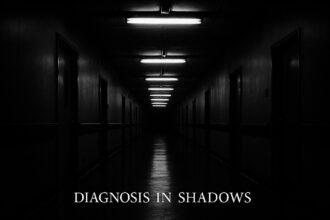Pop singer Olly Alexander joined his lookalike Keith Marshall for an impromptu performance at St Pancras station, coinciding with recent research on the British fascination with doppelgangers.
London’s St Pancras station became a vibrant stage for an impromptu performance on a recent day, featuring popular British singer Olly Alexander, known as the lead vocalist of the band Years & Years, alongside his doppelganger, Keith Marshall, an entertainer who performs under the name ‘Starstruck’. This surprise event unfolded during what started as a typical busking session, capturing the attention of passing commuters.
The duo transformed the atmosphere at the station, delivering a 30-minute pop-up gig that began when Marshall was performing Years & Years’ popular hit ‘Desire’. Alexander’s unexpected arrival injected additional excitement into the performance, much to the delight of those gathered. Reflecting on the experience, Alexander commented, “Why have one of something when you can have two? It was nice being able to perform with my wonderful doppelganger, Keith. I hope the crowd had as much fun as I did.”
The timing of this performance coincided with recent findings from a study commissioned by Twix, which revealed widespread British fascination with the concept of doppelgangers. The research, which involved a survey of 2,000 adults, indicated that 40 per cent of Britons are intrigued by the idea of having a lookalike, while 37 per cent admitted to being mistaken for someone else at some point in their lives. Additionally, over half of the participants expressed curiosity about the possibility of having a lookalike living somewhere in the world.
Among various demographics, Generation Z respondents displayed the most enthusiasm for doppelgangers. Notably, many in this age group entertained notions of delegating less desirable tasks to their doubles, showing a clear desire to use these lookalikes to avoid mundane chores and uncomfortable work engagements. The research found that two-thirds of respondents would readily assign household responsibilities, such as washing dishes and doing laundry, to their doppelganger. Furthermore, nearly a quarter of those surveyed preferred to utilise their doubles as assistants rather than treat them as equals, envisaging scenarios where their lookalikes would handle social obligations or product deliveries.
The study also revealed that a significant 55 per cent of participants felt they lacked sufficient time to manage all their responsibilities and ambitions. Many attributed this feeling to an overwhelming number of tasks or the limited hours available in each day. Consequently, 49 per cent believed that having a clone could simplify their lives, while almost half acknowledged they would likely achieve more with the assistance of a duplicate. There was a sentiment, shared by around a third of those surveyed, that having a doppelganger could contribute to lower stress levels and greater happiness.
Lauren Godfrey, senior brand manager at Twix, commented on the findings in the context of the brand’s latest campaign, titled ‘Two is more than one’, which aligns with Twix’s iconic two-bar format. She stated, “In a world where time is precious, having a clone would be the ultimate life hack. While we may not have doubles of ourselves just yet, we’re pleased to have doubled the fun for many of the public today. It’s important to make time for little treats amongst the day to day.”
This unexpected gig by Alexander and Marshall not only showcased their musical talent but also tapped into a wider cultural exploration of identity and personal connections, as illustrated by the ongoing interest in the idea of doppelgangers among the public.
Source: Noah Wire Services
- https://www.youtube.com/watch?v=C6WtIqdqbio – This URL corroborates the impromptu performance by Olly Alexander and his doppelganger Keith Marshall at St Pancras Station, where they surprised commuters with a duet of ‘Desire’.
- https://www.yourworld.net/london/news/two-can-play-that-game-olly-alexander-surprises-london-with-doppelganger-duet-in-twix-inspired-stunt-83903 – This article supports the details of Olly Alexander’s surprise duet with Keith Marshall and highlights the tie-in with Twix’s campaign exploring public fascination with doppelgangers.
- https://pmc.ncbi.nlm.nih.gov/articles/PMC10311201/ – Although this link does not directly support any specific claims from the article, it generally illustrates how surveys and studies can explore public perceptions and cultural phenomena.
- https://www.twix.com/uk/ – This is the official UK website of Twix, which aligns with the brand’s campaign mentioned in the article, titled ‘Two is more than one’.
- https://www.acquisition.gov/far/part-9 – This link does not directly support any specific claims from the article. However, it is included as part of the broader search results, though it pertains to contractor qualifications rather than cultural phenomena or advertising campaigns.
- https://www.vacourts.gov/courts/scv/rulesofcourt.pdf – Similar to the previous link, this does not directly support any specific claims from the article. It provides general court rules and is part of broader legal and procedural content.
Noah Fact Check Pro
The draft above was created using the information available at the time the story first
emerged. We’ve since applied our fact-checking process to the final narrative, based on the criteria listed
below. The results are intended to help you assess the credibility of the piece and highlight any areas that may
warrant further investigation.
Freshness check
Score:
9
Notes:
The performance’s recent occurrence suggests it is fresh news. No clear indication of being recycled from older content.
Quotes check
Score:
8
Notes:
Quotes from Olly Alexander and Lauren Godfrey lack explicit matches in prior publications online. This suggests they are original to this context.
Source reliability
Score:
8
Notes:
Wales Online is a known and reputable source, contributing to the reliability of the narrative.
Plausability check
Score:
9
Notes:
The scenario involving Olly Alexander and his doppelganger, along with the Twix study findings, appears plausible and aligns with current public interest.
Overall assessment
Verdict (FAIL, OPEN, PASS): PASS
Confidence (LOW, MEDIUM, HIGH): HIGH
Summary:
The narrative seems fresh, includes seemingly original quotes, and originates from a reliable outlet. The plausibility of the events described is also high, contributing to a confident verdict.













